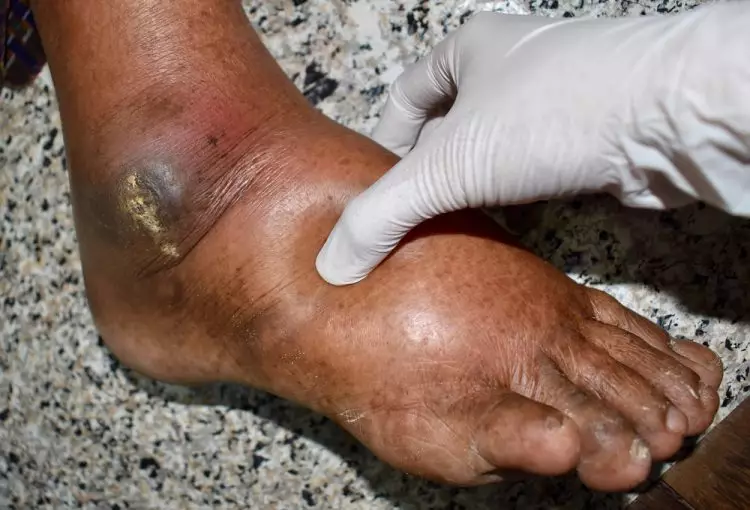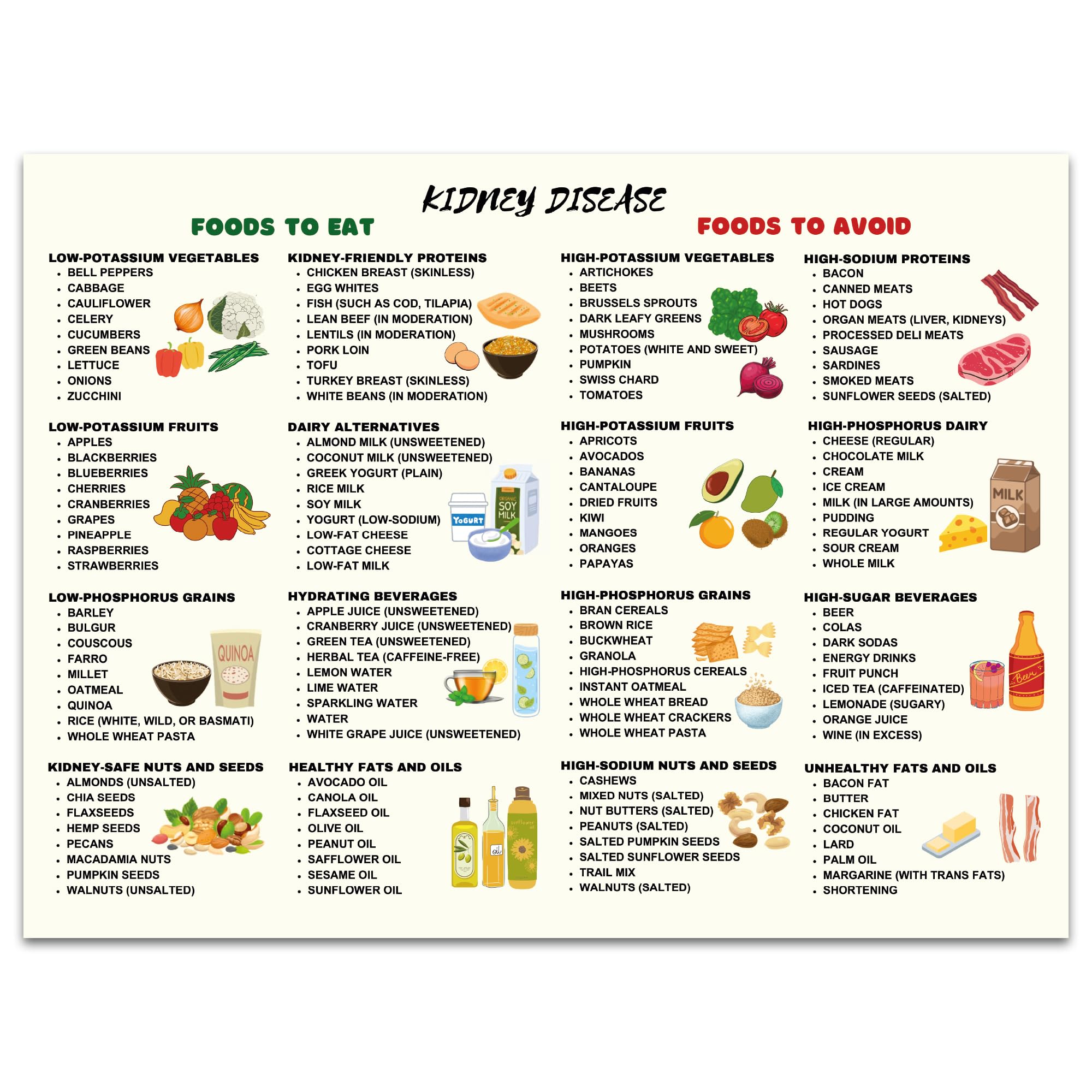Kidney Failure Warning Signs You Should Never Ignore – And What You Can Do About It
When was the last time you thought about your kidneys? For most people, it's rarely—if ever. These two bean-shaped organs work tirelessly behind the scenes, filtering waste from your blood, balancing fluids, and regulating blood pressure. Yet, they often go unnoticed until something goes wrong.
The alarming reality: Chronic kidney disease (CKD) affects about 10% of the global population—roughly 850 million people, with the majority in low- and middle-income countries, according to the National Kidney Foundation and World Health Organization reports. Shockingly, 9 out of 10 people with CKD are unaware they have it, and without early intervention, it can progress to kidney failure. That's why recognizing the subtle warning signs and taking proactive steps can be lifesaving.
In this guide, we'll explore the key signals your body might send, backed by global health insights, and share practical, evidence-based actions to protect your kidneys—no matter where you live.
⚠️ Early Warning Signs of Kidney Failure
Kidney failure, or end-stage renal disease (ESRD), doesn't happen overnight—it develops gradually, often over years. Symptoms can be vague and easily mistaken for other issues like stress or aging. Here are the most common red flags, supported by medical sources like Mayo Clinic and Cleveland Clinic:
- Constant Tiredness and Low Energy Toxin buildup in the blood (from poor filtration) can cause persistent fatigue, weakness, and brain fog. If rest doesn't help, it could signal declining kidney function.
- Swelling in the Legs, Ankles, or Face (Edema) Failing kidneys struggle to remove excess fluid, leading to puffiness, especially in the lower body or around the eyes. This is a common early sign worldwide, often linked to diets high in salt.
- Changes in Urination
Pay attention to:
- Frequent nighttime trips to the bathroom (nocturia)
- Foamy or bubbly urine (indicating protein loss)
- Dark, concentrated urine or unusually pale urine
- Reduced output or difficulty urinating These shifts are key indicators of kidney stress.
- Shortness of Breath Fluid accumulation in the lungs or anemia (from low erythropoietin production) can make breathing labored, even during light activity.
- Persistent Nausea or Vomiting Uremia—a buildup of waste products—can cause ongoing stomach upset, loss of appetite, or metallic taste in the mouth.
- Itchy or Dry Skin Imbalances in minerals like phosphorus lead to skin irritation, dryness, or rashes, as kidneys fail to regulate blood chemistry.
- Trouble Sleeping or Concentrating Toxins and hormone disruptions can interfere with sleep patterns and cognitive function, leading to insomnia or difficulty focusing.
If you notice multiple signs, consult a doctor promptly—early detection through simple blood and urine tests can halt progression.
🩺 What You Can Do to Protect Your Kidneys
The encouraging news: Up to 50% of CKD cases worldwide remain undiagnosed and untreated, but lifestyle changes can slow or prevent damage. Focus on these actionable steps, tailored for global audiences:
- Get Regular Checkups Screen annually if you have risk factors like diabetes or hypertension. Simple tests like eGFR (estimated glomerular filtration rate) catch issues early.
- Stay Hydrated Wisely Aim for 6–8 glasses of water daily to help flush toxins, but adjust based on your doctor's advice—especially in hot climates or if you have fluid restrictions.
- Monitor and Manage Blood Pressure High BP is a leading cause of kidney damage globally. Keep it under 130/80 mmHg through low-salt diets, exercise, and home monitoring.
- Control Blood Sugar Levels For diabetics (a major risk factor in regions like South Asia and North America), maintain stable glucose to protect kidney vessels.
- Adopt a Kidney-Friendly Diet
Prioritize fresh, whole foods while limiting salt, phosphorus, and potassium. Examples:
- Fruits: Apples, berries, grapes
- Vegetables: Cauliflower, cabbage, spinach (in moderation)
- Proteins: Lean fish, chicken, beans
- Grains: Whole grains like quinoa or rice Avoid processed foods, sodas, and excessive red meat. See the chart below for more ideas.
- Limit Over-the-Counter Painkillers NSAIDs like ibuprofen can harm kidneys with prolonged use—opt for alternatives and follow dosages.
- Quit Smoking and Moderate Alcohol Both impair blood flow to the kidneys; quitting can reduce risk by up to 30%.
- Stay Physically Active 30 minutes of moderate exercise daily, like walking or yoga, boosts circulation and overall kidney health.
👀 Who Is at Higher Risk for Kidney Failure?
Global data shows increased vulnerability if you:
- Have diabetes or hypertension (top causes worldwide)
- Are overweight or obese
- Have a family history of CKD
- Are over 60 (though it affects all ages)
- Live in areas with limited healthcare access, like parts of Africa or Asia
- Frequently use certain medications
Awareness and prevention are universal defenses.
🧩 Real-Life Stories: Why Early Action Matters
In India, a 50-year-old woman dismissed her fatigue and swelling as "just menopause," only to learn her kidneys were at 25% function due to unmanaged diabetes—a common issue in high-prevalence regions. Similarly, in the US, many with hypertension delay checks, leading to dialysis. The lesson: Small symptoms can signal big problems—act early to avoid lifelong treatments.
💡 FAQs on Kidney Failure
Q: Can kidney failure be reversed? A: Chronic cases aren't fully reversible, but early lifestyle changes can slow progression and improve quality of life.
Q: Is dialysis the only option for advanced failure? A: It's a common treatment, alongside transplants, but prevention through diet and monitoring is ideal.
Q: Does drinking lots of water prevent kidney disease? A: Hydration helps, but it's not a cure-all—balanced diet, BP control, and checkups are crucial.
Q: What foods should I avoid if kidneys are weak? A: Cut back on high-salt processed foods, sugary drinks, excess red meat, and phosphorus-rich items like dairy.
Disclaimer
This article is for informational purposes only and is not a substitute for professional medical advice. Consult a qualified healthcare provider if you experience symptoms or before changing your diet or routine. For personalized guidance, seek tests and follow expert recommendations.




Comments
Post a Comment
Thanks for your response,May God bless you